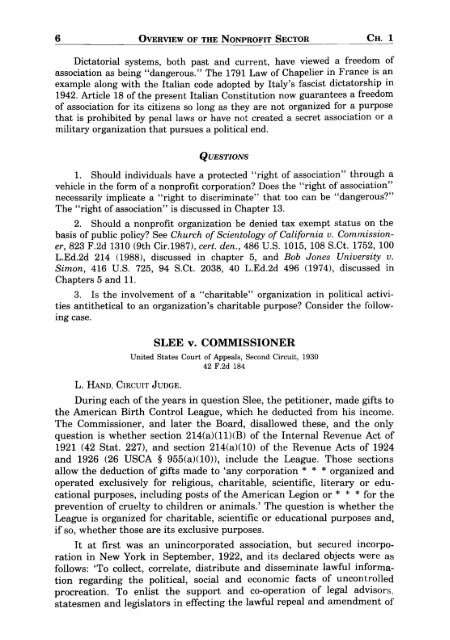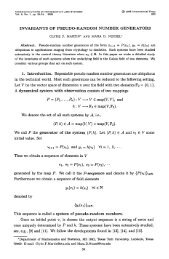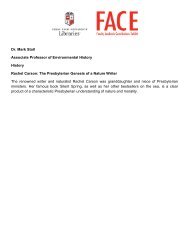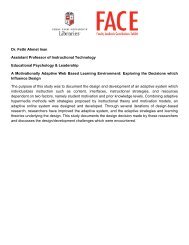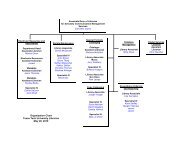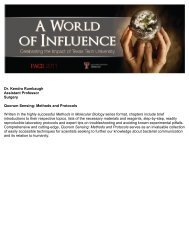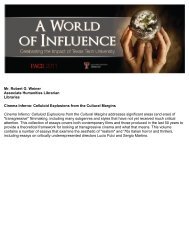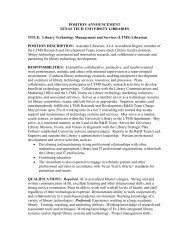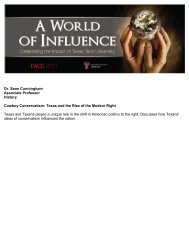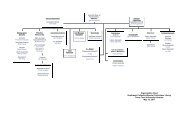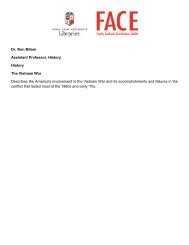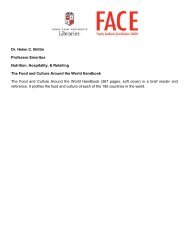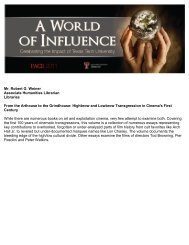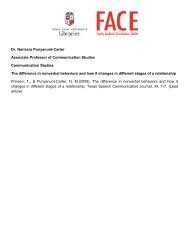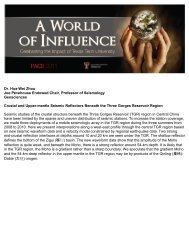Nonprofit Organizations Law and Policy Third Edition - Libraries ...
Nonprofit Organizations Law and Policy Third Edition - Libraries ...
Nonprofit Organizations Law and Policy Third Edition - Libraries ...
Create successful ePaper yourself
Turn your PDF publications into a flip-book with our unique Google optimized e-Paper software.
6 OVERVIEW OF THE NONPROFIT SECTOR CH. 1<br />
Dictatorial systems, both past <strong>and</strong> current, have viewed a freedom of<br />
association as being "dangerous." The 1791 <strong>Law</strong> of Chapelier in France is an<br />
example along with the Italian code adopted by Italy's fascist dictatorship in<br />
1942. Article 18 of the present Italian Constitution now guarantees a freedom<br />
of association for its citizens so long as they are not organized for a purpose<br />
that is prohibited by penal laws or have not created a secret association or a<br />
military organization that pursues a political end.<br />
QUESTIONS<br />
1. Should individuals have a protected "right of association" through a<br />
vehicle in the form of a nonprofit corporation? Does the "right of association"<br />
necessarily implicate a "right to discriminate" that too can be "dangerous?"<br />
The "right of association" is discussed in Chapter 13.<br />
2. Should a nonprofit organization be denied tax exempt status on the<br />
basis of public policy? See Church of Scientology of California v. Commissioner,<br />
823 F.2d 1310 (9th Cir.1987), cert. den., 486 U.S. 1015, 108 S.Ct. 1752, 100<br />
L.Ed.2d 214 (1988), discussed in chapter 5, <strong>and</strong> Bob Jones University v.<br />
Simon, 416 U.S. 725, 94 S.Ct. 2038, 40 L.Ed.2d 496 (1974), discussed in<br />
Chapters 5 <strong>and</strong> 11.<br />
3. Is the involvement of a "charitable" organization in political activities<br />
antithetical to an organization's charitable purpose? Consider the following<br />
case.<br />
L. HAND, CIRCUIT JUDGE.<br />
SLEE v. COMMISSIONER<br />
United States Court of Appeals, Second Circuit, 1930<br />
42 F.2d 184<br />
During each of the years in question Slee, the petitioner, made gifts to<br />
the American Birth Control League, which he deducted from his income.<br />
The Commissioner, <strong>and</strong> later the Board, disallowed these, <strong>and</strong> the only<br />
question is whether section 214(a)(1l)(B) of the Internal Revenue Act of<br />
1921 (42 Stat. 227), <strong>and</strong> section 214(a)(10) of the Revenue Acts of 1924<br />
<strong>and</strong> 1926 (26 USCA § 955(a)(10)), include the League. Those sections<br />
allow the deduction of gifts made to 'any corporation * * * organized <strong>and</strong><br />
operated exclusively for religious, charitable, scientific, literary or educational<br />
purposes, including posts of the American Legion or * * * for the<br />
prevention of cruelty to children or animals.' The question is whether the<br />
League is organized for charitable, scientific or educational purposes <strong>and</strong>,<br />
if so, whether those are its exclusive purposes.<br />
It at first was an unincorporated association, but secured incorporation<br />
in New York in September, 1922, <strong>and</strong> its declared objects were as<br />
follows: 'To collect, correlate, distribute <strong>and</strong> disseminate lawful information<br />
regarding the political, social <strong>and</strong> economic facts of uncontrolled<br />
procreation. To enlist the support <strong>and</strong> co-operation of legal advisors,<br />
statesmen <strong>and</strong> legislators in effecting the lawful repeal <strong>and</strong> amendment of


